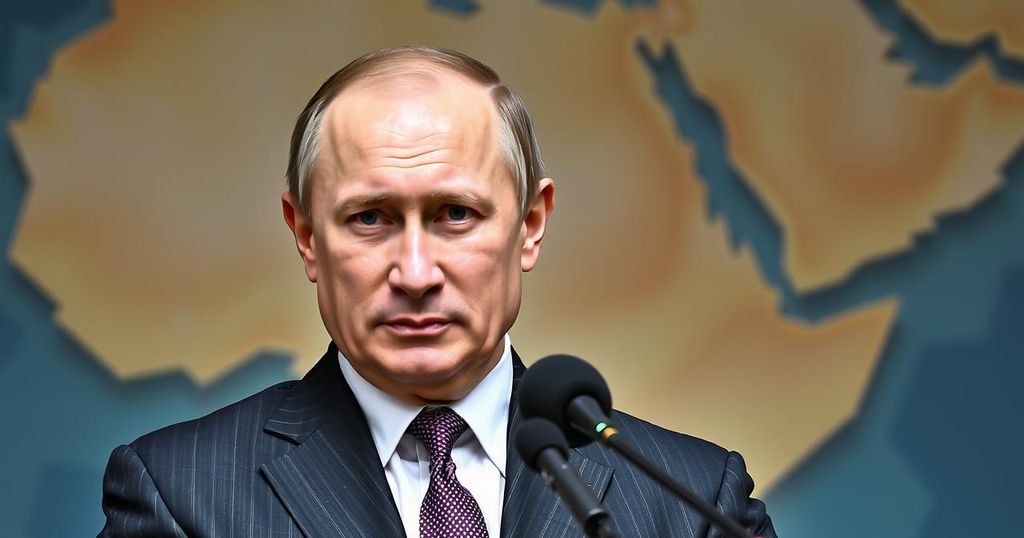Putin’s Influence in Africa Weakened by Allies’ Rejection of Russian Forces

Vladimir Putin’s influence in Africa is threatened as Sudan rejects a request for a Russian naval base and Libya’s Prime Minister opposes increased military presence. These developments follow the fallout from Assad’s regime collapse in Syria, prompting concerns about Russia’s regional ambitions and military assets. Sudan’s internal strife has delayed Russian plans since 2019, while Libyan leadership insists on formal agreements for foreign military involvement.
In the wake of the shifting political landscape following the fall of Bashar al-Assad in Syria, Vladimir Putin faces significant setbacks in Africa as two of his allies express resistance to Russian military involvement. Sudan has formally declined Russia’s request to build a naval base at Port Sudan, as reported by The Moscow Times. This refusal is attributed to concerns about Western repercussions, even in light of Russia’s offer of an S-400 anti-aircraft missile system as persuasion.
Simultaneously, Libyan Prime Minister Abdul Hamid Dbeibeh has advocated against any increase in Russian military presence in Libya. He emphasized that Libya should not become an international conflict zone, stating, “No patriotic person accepts the entry of a foreign country and imposing its hegemony.” These declarations come against the backdrop of Russia’s ambitions to secure a consistent military foothold in the region.
The geopolitical ramifications of Assad’s ousting have created an uncertain future for Russian military installations, particularly the strategically important Tartus naval base. Reports suggest a potential partial withdrawal of Russian forces from Syria, prompting a pivot towards consolidating influence in the Maghreb and northeastern Africa. Yet, Sudan and Libya’s recent positions could considerably undermine this strategic shift.
Since 2019, Russia has envisioned a naval base in Sudan, but ongoing internal strife has complicated these plans indefinitely. Russia’s support for conflicting military factions in Sudan while staving off international ceasefire resolutions highlights the complexity of the situation. Additionally, reports indicate that military assets from Syria may be redirected to Libya, raising further regional security concerns and reinforcing Libya’s stance of non-acceptance of foreign military forces without explicit agreements.
Meanwhile, Russia continues to explore avenues to involve itself with Syria’s new leadership to maintain influence in the region, but the pushback from African nations presents a formidable challenge. It appears that Russia’s capability to exert influence is increasingly strained, particularly amidst ongoing conflicts such as the situation in Ukraine.
The recent developments reflect a critical juncture for Russia’s strategic interests in Africa, particularly following the decline of its support for the Assad regime in Syria. Historically, Russia has sought to establish military bases and solidify alliances throughout Africa, viewing the continent as a strategic region for enhancing its global influence. However, the geopolitical dynamics are rapidly shifting due to local opposition, particularly from the leaders of Sudan and Libya, which could undermine Russia’s ambitions.
In conclusion, the dual rejections from Sudan and Libya represent a significant impediment to Russia’s efforts to reinforce its military foothold in Africa. The ongoing tensions in Syria and the resultant realignment of Russian forces further complicate Moscow’s global strategy. Should Russia fail to negotiate effectively with emerging powers and navigate regional politics, its influence in Africa could diminish significantly, adversely affecting its broader geopolitical ambitions.
Original Source: www.newsweek.com








